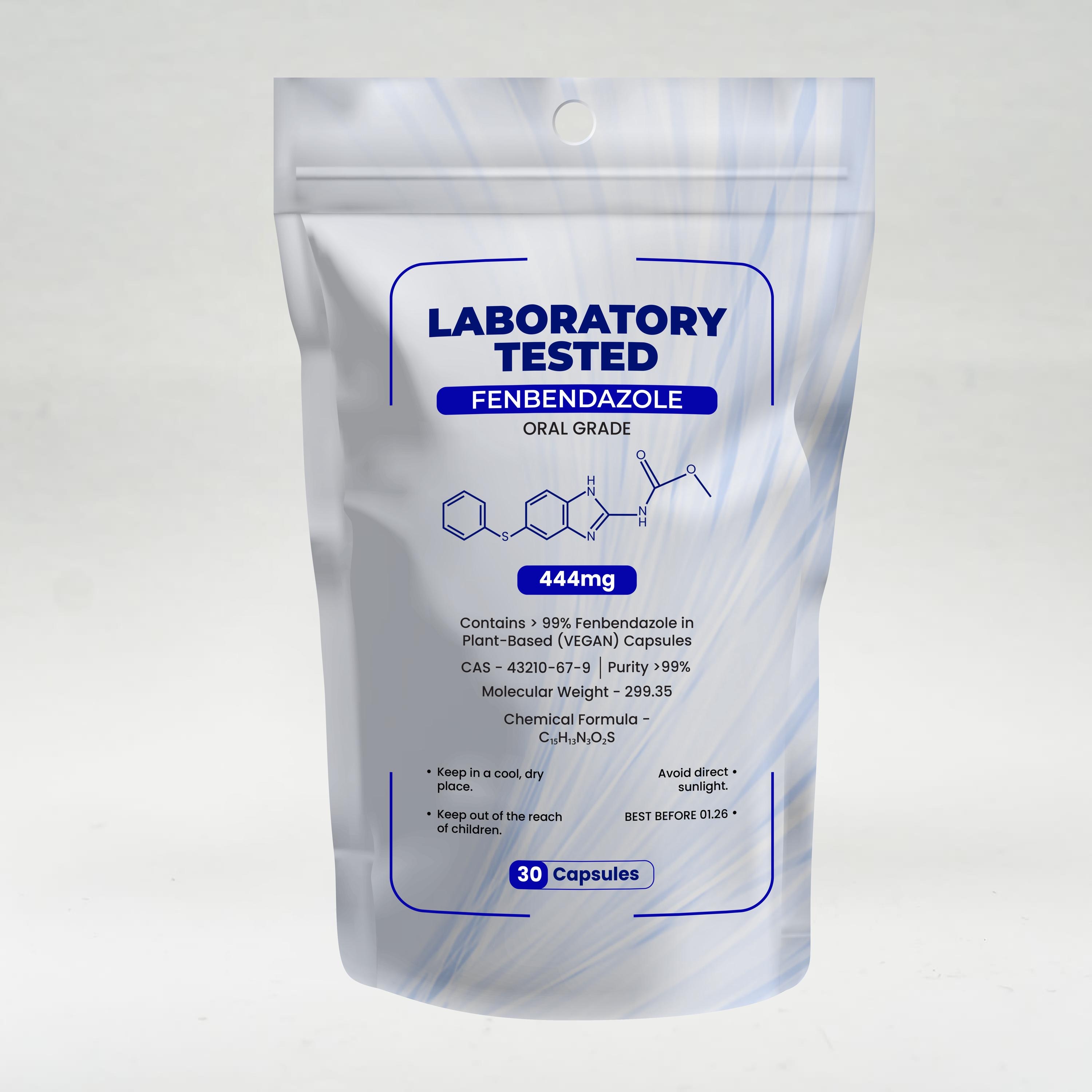222 mg fenbendazole: Reasons Vets Recommend It in Veterinary Medicine
Wiki Article
Discovering the Devices Behind Fenbendazole and Its Impact on Animal Health And Wellness
Fenbendazole is a commonly made use of anthelmintic known for its effectiveness against different parasites. Its primary mechanism involves the inhibition of microtubule formation, which disrupts vital processes in these pathogens. Past its antiparasitic buildings, fenbendazole likewise shows up to improve immune reactions and possesses anti-inflammatory benefits. Comprehending these complex impacts can reveal brand-new applications for pet health. Nonetheless, concerns remain concerning its complete capacity and safety and security account.The Pharmacokinetics of Fenbendazole
The pharmacokinetics of fenbendazole, a commonly utilized anthelmintic in veterinary medication, includes the study of its absorption, distribution, metabolism, and discharging within animal systems. After management, fenbendazole is rapidly soaked up from the stomach tract, with peak plasma focus taking place within hours. Its circulation is affected by factors such as tissue binding and lipid solubility, allowing it to permeate numerous tissues efficiently. The drug undertakes considerable metabolic rate mainly in the liver, where it is exchanged active and inactive metabolites. These metabolites contribute in the drug's overall efficiency and safety account. Excretion happens primarily via feces, with a smaller proportion removed through pee. The half-life of fenbendazole varies among types, which affects application regimens. Recognizing these pharmacokinetic homes is vital for maximizing its healing usage and making certain efficient bloodsucker control in vet techniques.Systems of Activity Against Parasites
Fenbendazole applies its antiparasitic effects primarily through the inhibition of microtubule formation in bloodsuckers. This disruption affects their structural honesty and mobile functions, resulting in impaired basal metabolism. As an outcome, the medication effectively compromises the survival and reproduction of various parasitic organisms.Inhibition of Microtubule Formation
Inhibition of microtubule development represents an important mechanism through which certain anthelmintic agents, consisting of fenbendazole, apply their results on bloodsuckers. Fenbendazole binds to tubulin, a healthy protein that develops microtubules, interrupting the polymerization procedure necessary for microtubule setting up. This disturbance impairs necessary mobile functions, consisting of mitosis, intracellular transport, and structural honesty. As microtubules play an essential duty in maintaining the shape and function of parasitic cells, their inhibition causes cell cycle arrest and ultimate death of the bloodsucker. This system is especially reliable versus nematodes, as their dependence on microtubules for wheelchair and nutrient absorption makes them susceptible to fenbendazole. The inhibition of microtubule development is an important aspect of fenbendazole's therapeutic efficiency in veterinary medication.Interruption of Basal Metabolism
Interrupting energy metabolism is one more important system whereby fenbendazole targets parasitical microorganisms. This anthelmintic alters the power production paths within parasites, mainly influencing their capability to create adenosine triphosphate (ATP) By hindering sugar uptake and interfering with mitochondrial feature, fenbendazole limits the energy sources crucial for the survival and reproduction of these organisms. As an outcome, parasites become progressively at risk to ecological stress and anxieties and immune actions. Moreover, the disturbance in basal metabolism not only affects the bloodsuckers directly but also decreases their capability to absorb nutrients, additionally impairing their growth. In general, the disruption of energy metabolic process represents an essential facet of fenbendazole's efficiency against various parasitic infections, adding substantially to enhanced pet wellness outcomesProspective Negative Effects and Safety Account
The possible adverse effects and security profile of fenbendazole warrant mindful consideration, especially in veterinary applications. While typically considered safe, some pets may experience negative reactions, consisting of gastrointestinal disturbances such as vomiting and diarrhea. Furthermore, neurological symptoms, although rare, have actually been reported in sensitive individuals, highlighting the need for monitoring throughout treatment.
Fenbendazole's safety and security in numerous species, consisting of dogs and cats, has been recorded, but dosage and period of therapy have to be very carefully taken care of to lessen threats. Expecting or breast feeding animals might also need special attention, as the results on creating fetuses or nursing offspring are not totally understood.
Routine veterinary consultations can assist reduce potential adverse effects and ensure the medication is provided suitably. Subsequently, while fenbendazole is an efficient anthelmintic representative, alertness concerning its negative effects is vital for maintaining animal health.

Fenbendazole's Influence on Immune Feature
Fenbendazole has actually been fenbendazole 444 noted for its possible to modulate immune system responses in animals. Its anti-inflammatory buildings might add to improved immune feature, supplying a twin benefit in handling health (fenbendazole capsules). Understanding these impacts is important for examining fenbendazole's duty in veterinary medicineImmune System Inflection

Anti-inflammatory Features
Anti-inflammatory effects stand for a substantial element of fenbendazole's influence on immune function. Research suggests that fenbendazole may lower the manufacturing of pro-inflammatory cytokines, which are essential in mediating inflammatory reactions. By modulating these cytokines, fenbendazole can potentially minimize inflammation-related conditions in pets. This anti-inflammatory activity not only aids in managing signs related to different conditions but likewise enhances total body immune system efficacy. In addition, its ability to promote a well balanced immune feedback helps protect against too much inflammatory damage, which can lead to chronic health concerns. Subsequently, fenbendazole's duty in swelling management underscores its relevance in vet medicine, providing a double advantage of antiparasitic action and immune system assistance for pet health.Applications Beyond Conventional Parasitical Infections
While mostly recognized for its efficiency against numerous parasitic infections, fenbendazole has actually gathered interest for potential applications yet conventional extent. Recent researches suggest that fenbendazole may have advantageous results on mobile health and wellness and immune response, making it a fascinating candidate for managing various other health and wellness problems in pets. As an example, its reported anti-inflammatory properties may provide alleviation for animals struggling with chronic inflammatory conditions. Furthermore, some study shows that fenbendazole can contribute in supporting the total wellness of animals by boosting vitamins and mineral absorption and intestinal health and wellness. Additionally, its prospective as an accessory therapy in cancer cells treatment has actually sparked passion, as initial findings recommend it could hinder tumor cell growth in specific contexts. These varied applications highlight fenbendazole's convenience, motivating further exploration right into its complex benefits for animal wellness beyond its conventional use as a deworming agent.Future Research Study Instructions and Ramifications for Pet Health And Wellness
The exploration of fenbendazole's prospective applications has opened new opportunities for research aimed at enhancing animal health. Future studies can concentrate on its performance versus a wider variety of pathogens, consisting of germs and infections, thus expanding its duty in vet medicine. The implications of fenbendazole's mechanisms, such as its effect on immune inflection, warrant additionally examination to comprehend just how it can boost overall wellness in numerous varieties.Furthermore, research may discover optimal dosages and solutions to maximize efficacy while minimizing possible negative effects. Examining fenbendazole's collaborating impacts with other medicines might result in a lot more efficient treatment protocols. Longitudinal research studies reviewing lasting end results in animals treated with fenbendazole might provide useful understandings into its security and performance. In general, the continued exploration of fenbendazole provides encouraging capacity to boost animal wellness, necessitating a collaborative technique among researchers, veterinarians, and pharmaceutical programmers to facilitate advancements in this field.
Regularly Asked Concerns
Can Fenbendazole Be Used in Livestock for Bloodsucker Avoidance?
The concern of whether fenbendazole can be used in animals for bloodsucker avoidance matters, as producers seek efficient therapies (222 mg). Study indicates it may supply advantages, yet proper standards and veterinary recommendations are vital for safe usageWhat Is the Recommended Dosage of Fenbendazole for Different Pets?

Exist Any Kind Of Understood Medicine Interactions With Fenbendazole?
Current knowledge shows that fenbendazole might communicate with certain medications, potentially influencing their efficacy or metabolic rate. Veterinary professionals recommend speaking with a veterinarian to analyze private pet instances and establish any feasible interactions before management.Just How Does Fenbendazole Compare to Other Antiparasitic Medications?
Fenbendazole is often compared to various other antiparasitic medications based on effectiveness, range of task, and safety and security accounts. It is favored for its performance against a variety of parasites while typically exhibiting very little side results in animals.Is Fenbendazole Effective Versus Viral or Microbial Infections in Pets?
The performance of fenbendazole versus viral or microbial infections in pets remains unproven. Research study mostly concentrates on its antiparasitic buildings, with minimal evidence supporting any role in dealing with non-parasitic infections in vet medicine.Report this wiki page